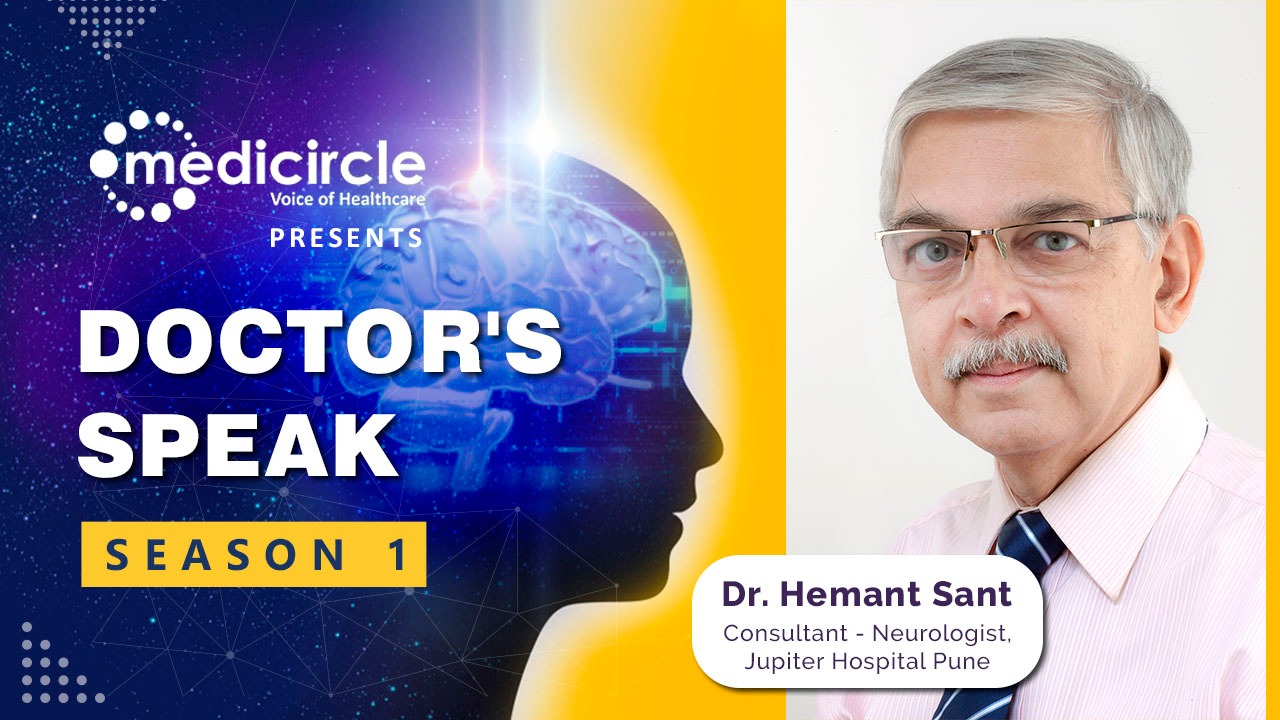Alzheimer’s disease is becoming a important health problem in India due to a progressive increase in our lifespan. It is a disease of ageing, in which there is a gradually progressive impairment of recent memory (new learning), along with decision making, communication (word finding and naming difficulty) and in late stages, inability to carry out daily activities.
Personality and behaviour changes, sleep disorders, and hallucinations often are seen especially in late stages, and cause great distress to the family members. This disease is more common after the age of 60 though occasional cases are noted in their 50s also, becoming more common with each decade.
There is no one cause for Alzheimer’s, the brain cells start shrinking, and it is mainly their connections with each other that are disturbed. the process starts in the area of the brain concerned with memory (the temporal lobes) and later spreads to involve other areas esp the frontal lobes which are concerned with behaviour and thinking.
Certain factors may increase the risk of a person having Alzheimer’s disease, including high blood pressure, diabetes, improper blood supply to the brain, family history of Alzheimer’s disease and sedentary lifestyle are all thought to contribute. However unknown factors may also be contributing as persons without any of these can also develop Alzheimer’s disease.
As there is no known cure for the disease, so the emphasis is on awareness and prevention. The disease is thought to begin in the 40’s so lifestyle modifications should begin at that age itself. Early detection and control of lifestyle diseases like blood pressure and diabetes is of course important, but the main focus should be to keep the brain active.
“Use it or lose it “is the slogan adopted for Alzheimer’s disease prevention, and all persons should be encouraged to do something new every day apart from their normal work so as to keep the brain circuits active. Physical exercise also has beneficial effects on memory, attention span, decision making and multitasking, and hence should not be neglected in middle age.
Recognising the disease early can help a lot in managing the disease and slow down its progression. So, memory and behaviour changes in later life should not be ignored. Certain medicines may help slow down the worsening but the emphasis is mainly on memory exercises and behaviour modification. Patients should be encouraged to do various new activities like puzzle solving, writing diary, recalling events of the day or tv serials, and also physical activity.
In late stages as mental faculties fail, there is burden on family members and they need constant counselling and encouragement. Useful information can be found on the website “dementiacarenotes.in”
Enormous research is ongoing in identifying chemicals and cellular abnormalities, and newer drugs are being tried out, though still in experimental stage. newer blood tests and brain imaging techniques are under evaluation.
Following are the few Do’s and don’ts which needs to be incorporated by individuals dealing with this disease:
Do's
1.Keep brain active -- do something new every day, apart from routine activities
2.. Recall day to day things.
Note down events of the day, newspaper or TV headlines, etc
Physical exercises.
Control of diseases like blood pressure and diabetes
Don’ts
Don’t remain sedantary
Don’t be afraid to ask for help from family members
Don’t ignore forgetfulness and seek medical help early.
The article was exclusively shared with www.medicircle.in by Dr Hemant Sant on the occasion of World Alzheimer's Day 2020.Dr. Hemant Sant practices as Consultant Neurologist at Jupiter Hospital, Pune. He completed MBBS from Gujrat University in 1981,DM - Neurology from University Of Bombay in 1989 and MD - Internal Medicine from Gujrat University in 1986.

 Dr. Hemant Sant, Consultant - Neurologist, Jupiter Hospital Pune tells us about how to beat the disease in golden years
Dr. Hemant Sant, Consultant - Neurologist, Jupiter Hospital Pune tells us about how to beat the disease in golden years











.jpeg)



.jpg)





.jpeg)

.jpg)





.png)

